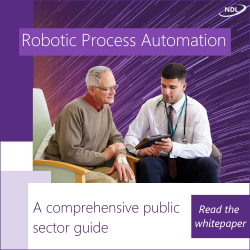The Department of Health is preparing to remove limitations on the issuing of e-prescriptions, raising the prospect that paper prescriptions will all-but disappear, the health secretary has announced.
Regulations that prevent GPs sending prescriptions to pharmacies digitally in some circumstances will be ripped up – with the aim of saving the NHS £300 million by 2021.
Current regulations only allow an electronic prescription to be used where a patient has a nominated pharmacy. But the Government has indicated that the restriction will be removed during autumn, subject to approval of the necessary regulatory changes.
There will continue to be a bar on electronic prescriptions of some controlled drugs or “specials”.
Matt Hancock, the health and social care secretary, said the move would make things more convenient for patients, while saving staff time. Repeat prescriptions could be easily collected from the pharmacy, instead of people having to visit the GP first, and the “worry” about losing paper prescriptions ended.
“In an NHS where thousands of GP surgeries already enjoy the benefits of electronic prescriptions, it can’t be right that there are occasions when archaic paper prescriptions still have to be used,” he said.
“As part of our long term plan, I want the NHS to become the most advanced healthcare system in the world.
“Electronic prescribing both saves GPs’ time and helps to give patients a better, more seamless experience and ensures every pound of taxpayers’ money is spent effectively.”
Huge increase
Almost 7,000 GPs in England are already able to upload prescriptions electronically, a huge increase on the figure of just eight back in 2010. Over the same period, the number of pharmacies sites boasting an electronic prescriptions service has mushroomed from only 18 to more than 11,500 – leaving just 85 without it.
Hancock is an evangelist for introducing new technology into the NHS. This will include barcoded wristbands that help staff track patients and what treatment they have been given as they move around hospitals.
The scheme was originally tested in six NHS hospitals two years ago, which found that it allowed accurate recording of which treatment had been given by which staff.
Officials estimate that it could save the NHS up to £1 billion over seven years by reducing mistakes, prompting Hancock to pledge to speed up its expansion.
In a speech last month, he said: “Let this be clear: tech transformation is coming. Our health system is uniquely placed to become the most advanced health system in the world, one where technology addresses the user need, making care better for patients, but, just as importantly, making life easier for staff.”
Image by Daniel Sone, public domain via Wikimedia Commons





